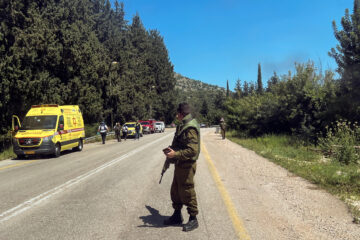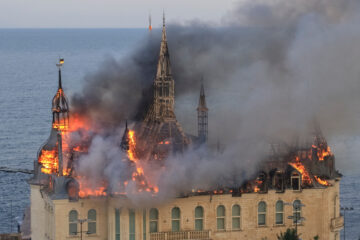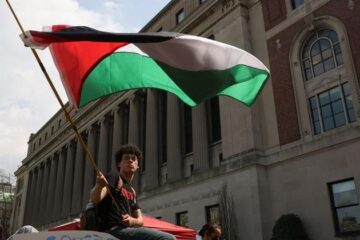Iraq forces retake large part of key city Ramadi from IS
Iraqi security forces recaptured a large part of the city of Ramadi from the Islamic State group Tuesday, officials said, scoring a significant breakthrough in their fightback against the jihadists.
Baghdad\’s forces have been fighting for months to secure territory around Ramadi, the capital of the vast Anbar province, and retaking the Al-Tameem area on its southwestern side is an important step in the battle for the major city west of Baghdad.
Warplanes from the US-led coalition battling IS have backed them, carrying out more than 45 air strikes in the Ramadi area in the past week.
"Today, our forces completely cleared the Al-Tameem area after a fierce battle against Daesh gunmen," said Sabah al-Noman, spokesman for Iraq\’s counter-terrorism service, using an Arabic acronym for IS.
IS fighters "had no choice except to surrender or fight, and they were completely destroyed," Noman told AFP.
Anbar police chief Major General Hadi Irzayij confirmed that Al-Tameem had been retaken, as did Brigadier General Yahya Rasool, spokesman for the Joint Operations Command.
"The liberation of Al-Tameem will greatly help in speeding up the liberation of the city of Ramadi," Rasool said.
"Iraqi forces are ready and close to entering the centre of the city," Irzayij said.
Al-Tameem lies to the southwest of IS-held central Ramadi, and Iraqi forces now need to make matching advances on the northern side in order to attack the jihadists from both sides.
Retaking the city would open the way for future operations and undercut IS propaganda, said Colonel Steve Warren, spokesman for the US-led operation against IS.
"Liberating it, I think, would be a blow to (IS\’s) claims they can hold ground and act as a government, as a caliphate," Warren said, referring to the cross-border state the jihadists declared last year.
The city also "provides a platform for the continued clearance of the Euphrates river valley," Warren said.
And "Ramadi provides the supply lines for the Iraqi security forces to be able to fight in Mosul," he said, referring to IS\’s main hub in northern Iraq.
For now, Iraqi forces are working to clear bombs planted by IS — a favoured tactic of the jihadists that means they can kill security personnel and civilians long after they have withdrawn from an area.
"The process of removing bombs from the houses and roads has begun," Irzayij said.
Rasool said large amounts of weapons and supplies had been found, as well as explosives-rigged vehicles.
IS overran large parts of Iraq in June 2014, including major territory in Anbar, which stretches from the borders with Syria, Jordan and Saudi Arabia to the western approach to Baghdad.
Shifting parts of Ramadi, located 100 kilometres (60 miles) from Baghdad, had been held by anti-government fighters since the beginning of 2014, but IS did not succeeded in completely overrunning it until May of this year.
On Monday, coalition aircraft targeted IS units, fighting positions, vehicles and supplies, as well as machineguns and a mortar system used by the jihadists, according to a statement on the strikes.
International support in the form of strikes, training and arms plays an important role in Iraq\’s battle against IS, but Iraqi Prime Minister Haider al-Abadi is walking a fine line between receiving that assistance and projecting sovereignty.
Iraq is in a row with Turkey over the deployment of up to 300 soldiers and 20 tanks to a base in the country\’s north where Ankara\’s forces have trained Sunnis who have volunteered to fight IS.
Baghdad on Monday gave Ankara 48 hours to remove the newly deployed forces, but said the ultimatum did not apply to Turkish advisers in the country.
Abadi also made a series of increasingly strident statements about foreign forces in the country last week after remarks by US officials about sending additional troops to Iraq sparked a major political backlash.
He said the deployment of foreign combat ground forces to Iraq was a "hostile act," but was also careful to make clear that Baghdad still welcomes other forms of assistance.
SOURCE: AFP
[do_widget_area inner_adsbar]










